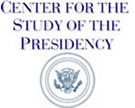The new measures are part of a broader effort by the U.S. to reset its political and economic strategy with China. Over the past several months, the Trump administration has implemented an increasing amount of tariffs on Chinese goods, which experts say has lead to an all-out trade war.
The new financial firefight between the two countries started in March when President Trump signed tariffs on aluminum and steel products. China retaliated weeks later, slapping tariffs on food products, including fruit and pork, as well as scrap aluminum. Since then, the tension between the U.S. and China has grown increasingly fraught, with U.S. tariffs on China now proposed to hit about $250 billion worth of goods, or nearly half of all Chinese imports unto the United States.
The administration has also accused the Chinese government of interfering in U.S. elections. Last week, Vice President Mike Pence, in a speech at the Hudson Institute, said Russian actions to influence American elections "pales in comparison to what China is doing across the country."
In addition, Pence said, China is directing its businesses to obtain American intellectual property “by any means necessary.” In a report issued by the White Housein June, President Trump valued the theft of intellectual property by China between $200 and $300 billion.
The new push for increased control and restriction on China accessing U.S. technology falls in line with the administration’s strategy of exacting harsher measures against the country for what it says are unfair trade practices. Although China already faces complications investing in American companies and importing their goods, the new measures will make that process even more difficult. Combined with increasing tariffs, the new restrictions amount to some of the most significant steps the U.S. has taken to implement its “America first” strategy, current and former U.S. officials told The Daily Beast.
"We have the greatest technology in the world. People copy it. And they steal it, but we have the great scientists, we have the great brains and we have to protect that and were going to protect it and that’s what we’re doing,” President Trump said in a meeting with Republican lawmakers in June. “We have a lot of things we can do it through and were working that out."
Pence also said during his speech that the government is concerned that U.S. emerging and foundational technology is not used to aid the “Made in China 2025 Plan”—China’s effort to bolster hi-tech industries at home.
The two pieces of legislation passed under the 2019 NDAA will confront that threat head on.
The first expands the jurisdiction The Committee on Foreign Investment in the U.S., an agency that reviews the national security implications of foreign investments in American companies.
“Such legislation will provide additional tools to combat the predatory investment practices that threaten ourů national security, and future economic prosperity,” Trump said in a statement in June.
The current committee—which includes officials from the Treasury, State, Defense, Justice, Commerce, Energy, and Homeland Security Departments—investigates mergers and acquisitions and sends its findings to the president for consideration on whether to block the deals. Over the years, CFIUS has become increasingly skeptical of deals involving China and has blocked several transactions that would have given it access to critical technology or data.
China submits the most notices to CFIUS each year, according to government data, outpacing Canada, the United Kingdom and Japan. One official that works in the review process told The Daily Beast a representative from China is based in the U.S. whose primary focus is to handle the administration’s review of mergers and acquisitions. Trump—like President Obama before him—has blocked several Chinese investments and acquisitions, including Broadcom’s attempt to take over U.S. chipmaker Qualcomm.
The other piece of legislation passed in August requires the administration to identify and control the export of emerging technologies deemed vital to U.S. national security.
New regulations issued by various U.S. government agencies will determine exactly how the new legislation will be implemented in real-time.
In the meantime, U.S. businesses are scrambling to put together contingency plans on the new restrictions included in the export control legislation. They are fearful the legislation is too broad and will cast undue burden while at the same time hurting companies’ relations with China. Any increased oversight, or restrictions on exports, could hurt their international deals and therefore their bottom line, executives at three high-profile tech companies told The Daily Beast.
So, companies are frantically working to draft comments for the government that will help it identify which emerging and foundational technologies are essential to the U.S. national security and should be controlled for export, officials inside the department of Commerce said.
“We have to strike a balance here,” said one executive whose company, based in California, deals in artificial intelligence. “We need to be strategic in the way we write our comments. We need to be on the offensive and the defensive at the same time.”
Meanwhile, the Commerce department is holding seminars across the country for the private sector on how to implement the new regulations regarding export controls.
It’s unclear exactly how the government will begin reviewing non-controlling investments by China into U.S. businesses that manufacture and deal with critical technology and infrastructure. Former and current officials in the Treasury and Commerce departments said the government will have the ability to retroactively review those deals.
When it comes to hitting each other with harsh economic measures, neither China nor the U.S. show signs of backing down.
“Beijing is undertaking a comprehensive and coordinated campaign to undermine support for the president , our agenda, and our nation’s most cherished ideals,” Pence said last week. “The United States has been defending our interests with renewed American strength. We will protect the private property interests of American enterprise.”




